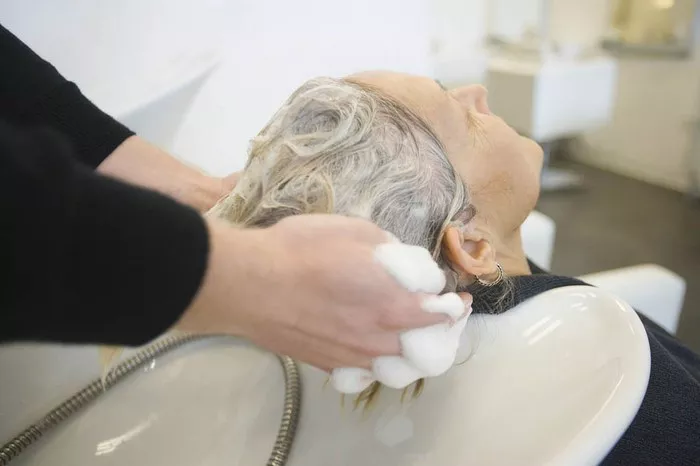In the fast-paced world we live in, personal hygiene has become a top priority for many. Among the various aspects of personal care, hair maintenance is a significant one. A common question that often arises is whether washing your hair every day can be harmful. This concern stems from the belief that frequent shampooing might strip the scalp and hair of essential oils, leading to dryness, breakage, and other issues. However, the answer to this question is not as straightforward as it might seem. Factors such as hair type, lifestyle, and environmental conditions all play a role in determining the optimal hair washing frequency. In this article, we will delve into the science behind hair washing, explore the pros and cons of daily hair washing, and provide practical tips to help you maintain healthy, vibrant hair.
The Science Behind Hair Washing
Understanding the science behind hair washing is crucial to making informed decisions about your hair care routine. Hair is primarily composed of keratin, a protein that gives it structure and strength. The scalp produces sebum, an oily substance that helps protect and moisturize both the scalp and hair. Sebum production varies from person to person, influenced by factors such as genetics, hormones, and environmental conditions. When sebum production is balanced, it keeps the hair and scalp healthy. However, excessive sebum can lead to greasy hair and scalp issues, while insufficient sebum can result in dry, brittle hair.
Shampoo works by emulsifying the oils and dirt on the scalp and hair, allowing them to be rinsed away. While this process is essential for maintaining cleanliness, over-washing can disrupt the natural balance of sebum. When you wash your hair too frequently, the scalp may compensate by producing even more oil, leading to a vicious cycle of excessive sebum production and frequent washing.
The Pros and Cons of Daily Hair Washing
Pros:
- Cleanliness: Daily washing ensures that your hair and scalp remain free from dirt, sweat, and pollutants, which is particularly beneficial for those who engage in physical activities or live in urban environments.
- Freshness: Frequent washing can give a feeling of freshness and cleanliness, boosting confidence and overall well-being.
- Styling: If you use styling products regularly, daily washing can help remove product buildup, making it easier to style your hair each day.
Cons:
- Dryness: Over-washing can strip the scalp and hair of natural oils, leading to dryness, brittleness, and increased risk of breakage.
- Scalp Issues: Excessive washing can irritate the scalp, causing redness, itching, and flakiness. For those with sensitive skin, this can be particularly problematic.
- Hair Damage: Harsh shampoos and hot water can damage the hair cuticle, leading to frizz, split ends, and a lackluster appearance.
Factors Influencing Hair Washing Frequency
Several factors can influence how often you should wash your hair:
- Hair Type:
- Oily Hair: People with oily hair may need to wash their hair more frequently to prevent greasiness and maintain a clean appearance.
- Dry Hair: Those with dry hair should limit washing to avoid stripping the hair of its natural oils, which can exacerbate dryness and brittleness.
- Curly Hair: Curly hair tends to be drier and may benefit from less frequent washing to retain moisture and prevent frizz.
- Lifestyle:
- Physical Activity: If you engage in regular exercise or outdoor activities, you may need to wash your hair more often to remove sweat and dirt.
- Environmental Conditions: Living in areas with high pollution or humidity can increase the need for frequent washing to keep your hair clean and healthy.
- Scalp Health:
- Sensitive Scalp: Individuals with a sensitive scalp should be cautious about frequent washing, as it can lead to irritation and other scalp issues.
- Dandruff: If you have dandruff or other scalp conditions, consult a dermatologist for advice on the appropriate washing frequency and products.
Practical Tips for Healthy Hair
- Choose the Right Shampoo:
- Opt for gentle, sulfate-free shampoos that are less likely to strip your hair of natural oils. Look for products specifically formulated for your hair type (e.g., oily, dry, curly).
- Use Conditioner Wisely:
- Apply conditioner only to the ends of your hair, avoiding the roots. This helps moisturize the hair without weighing it down or making it greasy.
- Cold Water Rinse:
- Finish your hair washing routine with a cold water rinse to seal the hair cuticle, reduce frizz, and add shine.
- Limit Hot Water Exposure:
- Hot water can be harsh on the hair and scalp, so try to use lukewarm or cool water when washing your hair.
- Protect Your Hair from Heat:
- Use heat protectant products before blow-drying or using other heat styling tools to prevent damage.
- Deep Conditioning Treatments:
- Incorporate deep conditioning treatments into your routine once a week to nourish and hydrate your hair.
- Avoid Over-Brushing:
- Brush your hair gently and avoid over-brushing, especially when it’s wet, as this can cause breakage and damage.
- Stay Hydrated:
- Drinking plenty of water and maintaining a balanced diet can contribute to healthier hair and scalp.
Conclusion
While washing your hair every day is not inherently harmful, it’s important to consider your individual hair type, lifestyle, and scalp health when deciding on a washing frequency. For most people, washing hair every other day or a few times a week is sufficient to maintain cleanliness and health. By choosing the right products, using proper techniques, and following these practical tips, you can enjoy beautiful, healthy hair without the need for daily washing. Remember, the key to great hair is finding the right balance that works for you.
Related topic:
- Can You Wash Your Hair Every Day with Tape-In Extensions?
- Daily Hair Oil: Is It Beneficial or Harmful?
- Can You Repair Dry Brittle Hair


